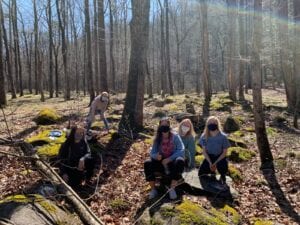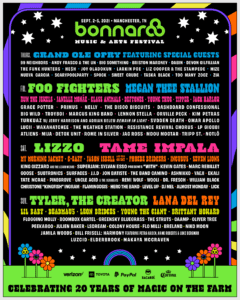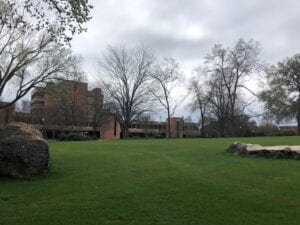Long Night of Churches works to attract crowd, end propaganda
A group of churches, chapels and synagogues participate in a project aimed at expelling existing stigmas against religious institutions in the Czech Republic.
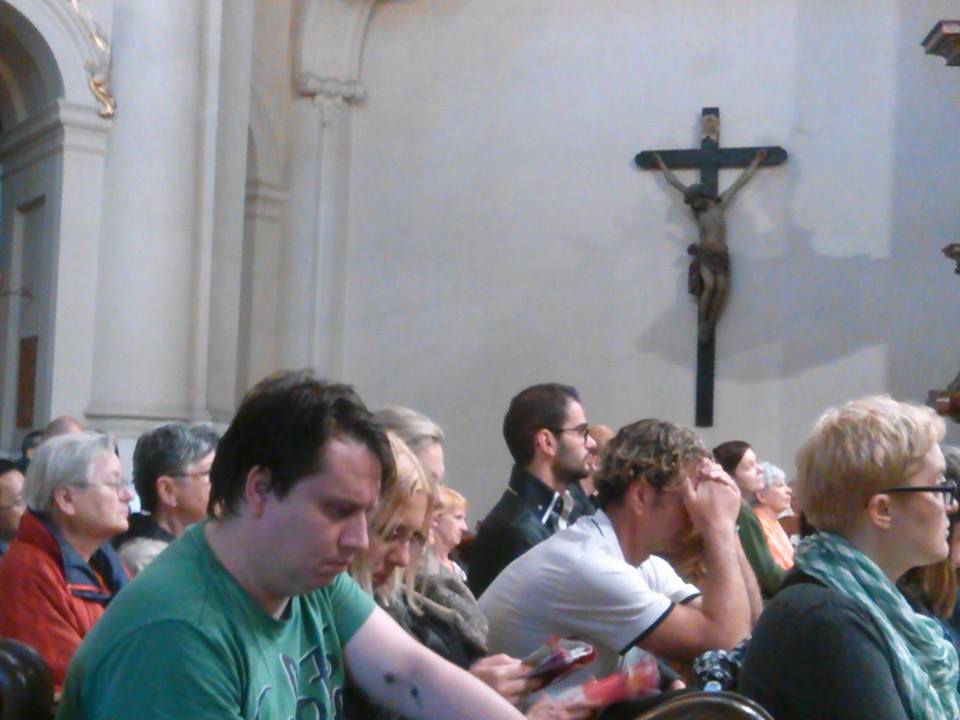
A crowd gathers at St. Nicholas Church in Prague for the Long Night of Churches.
In Prague, tourists will notice the city dotted with historical Gothic and Baroque churches and cathedrals, some dating back to the tenth century. While the Czech Republic’s history is rich with religious reformations, Czechs today choose to seldom exercise their spiritual faith.
On May 23, local churches in Prague hosted Long Night of Churches, a project aimed at reintroducing locals to religion.
The Long Night of Churches project consists of multiple places of worship. Each site opened its doors to the public from 6:45-11:45 p.m. allowing visitors to enjoy cultural and architectural aspect of the churches, chapels and synagogues.

The project started in Vienna, Austria, in 2003, as a mission to end anti-church propaganda and expand membership along the way.
Religious communities almost ceased to exist during the communist era. After over 20 years of religious oppression, the churches have yet to rebound in attendance.
“It’s really hard to reestablish the church,” says Martina Kopecka, a deacon of Prague’s St. Nicholas church in Old Town Square.
With a national population of 10 .5 million, Kopecka said St. Nicholas maintains 600 members.
Dalibor Vik, also a deacon at St. Nicholas, said the anti-church propaganda is more prevalent among older generations, who can still remember when religious indifference was the expected norm during the communist years.
“We hope to change it by events like this,” Vik said. “Maybe they [can] find out that there’s nothing bad about the church.”
“It’s not about gaining new members. It’s mostly about inviting people. We think it’s better when they feel welcomed here.”
Citizens have largely abstained from religious involvement since their years under the Communism regime. From 1948-1989, the communist government outlawed religious practices, making atheism the dominant belief system. Many Czechs continue to abstain from a spiritual belief structure, making them one of the most non-religious countries in the world. Nearly 60 percent of Czechs claim to be undeclared or nonreligious.
According to Zaboj Horak, author of “Religion and the Secular State in the Czech Republic,” under communistic rule, church properties were seized by the state; church schools and seminaries were abolished; monasteries emptied out to make room for military activities, and almost all bishops were imprisoned.
“I can hardly blame them for being agnostic,” said Ryan Beavers, director of worship and media arts for Ooletwah United Methodist Church. “The Czech Republic has really just been in the wrong place at the wrong time through much of church history.”
Beavers travelled to the Czech Republic in 2012 for mission work with his church.
“The church has their work cut out for them,” said Beavers.
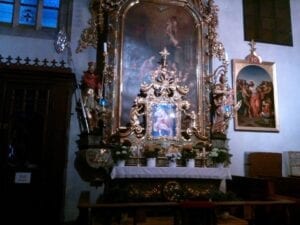
Beavers says that many Czechs believed that Communism was in bed with Catholcism and have deep rooted trust issues regarding the church.
A statue of Jan Hus, a religious revolutionary from the 1500s, can be found in the center of Old Town Square. Hus was burned at the stake in Rome even after the Catholic Church promised his safety.
“For me, Jan Hus seems like a martyr who was fighting for a more true faith,” said Beavers. “For the Czech people, that’s just one more guy that the religious people did wrong.”
Although the majority of Czechs continue to remain agnostic towards religion, Beavers said younger generations are becoming increasingly more interested in spirituality.
“It almost seems like they’re still coming into their own, and they’re still gaining confidence on their own,” Beavers said of a youth conference for Methodist worshippers in Plzen, Czech Republic. “They were just so happy to be there in a way I haven’t seen in America.”
Edited by Maggie Jones

